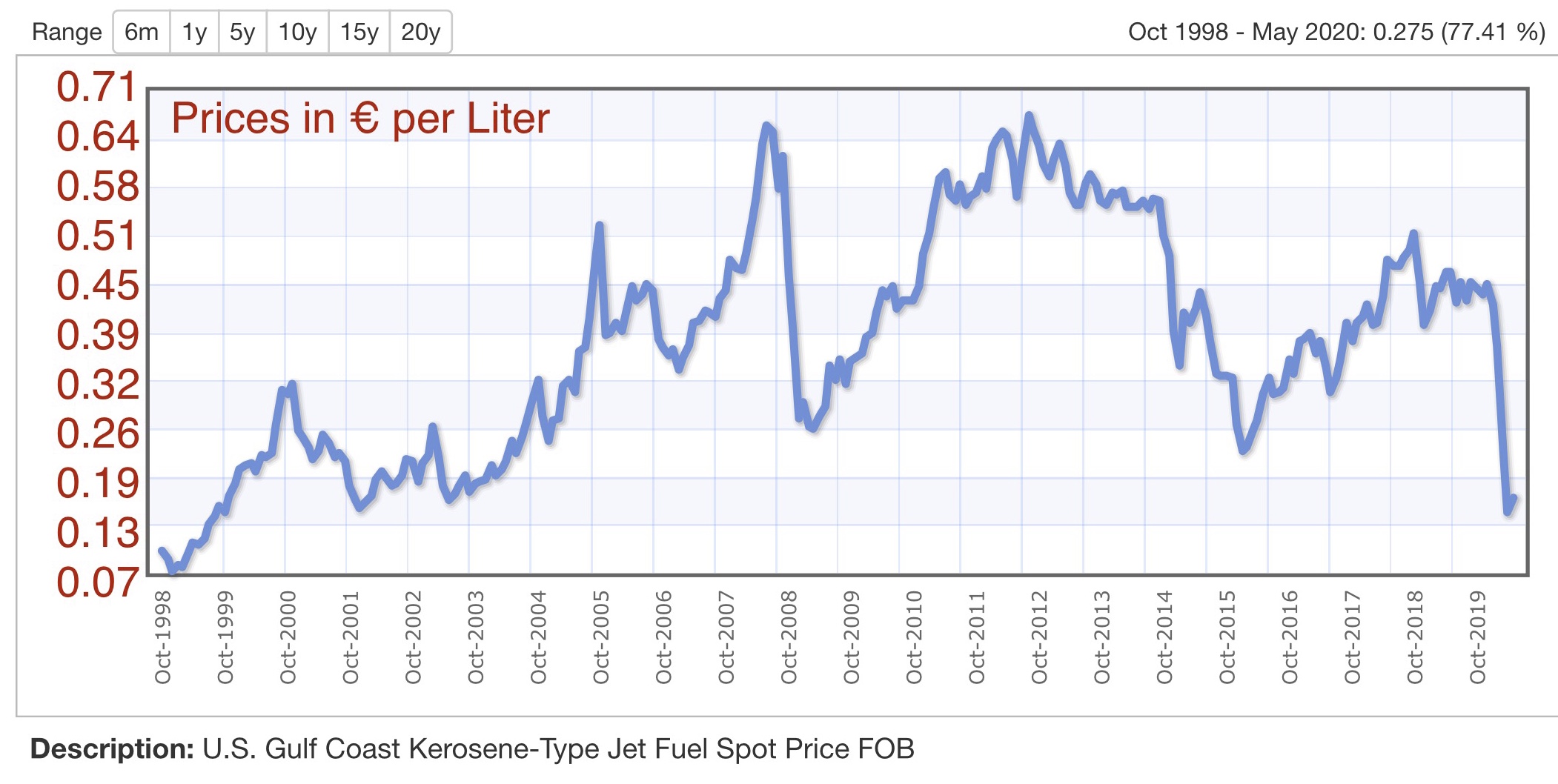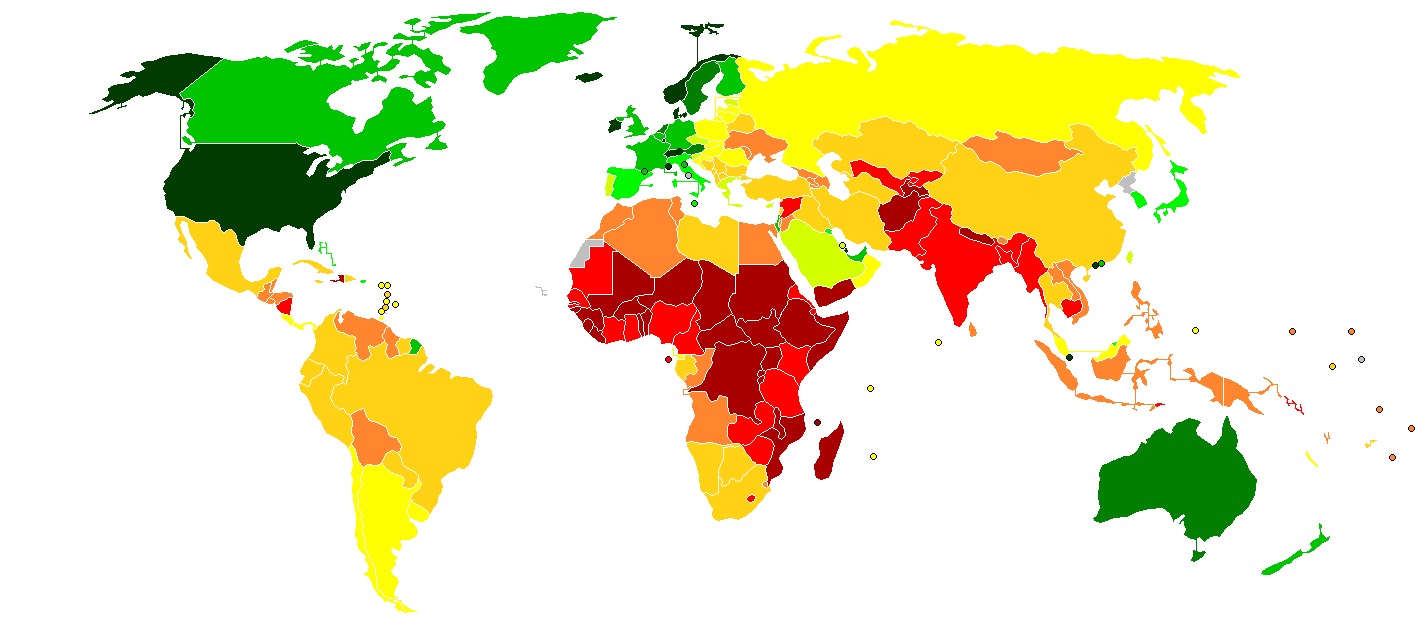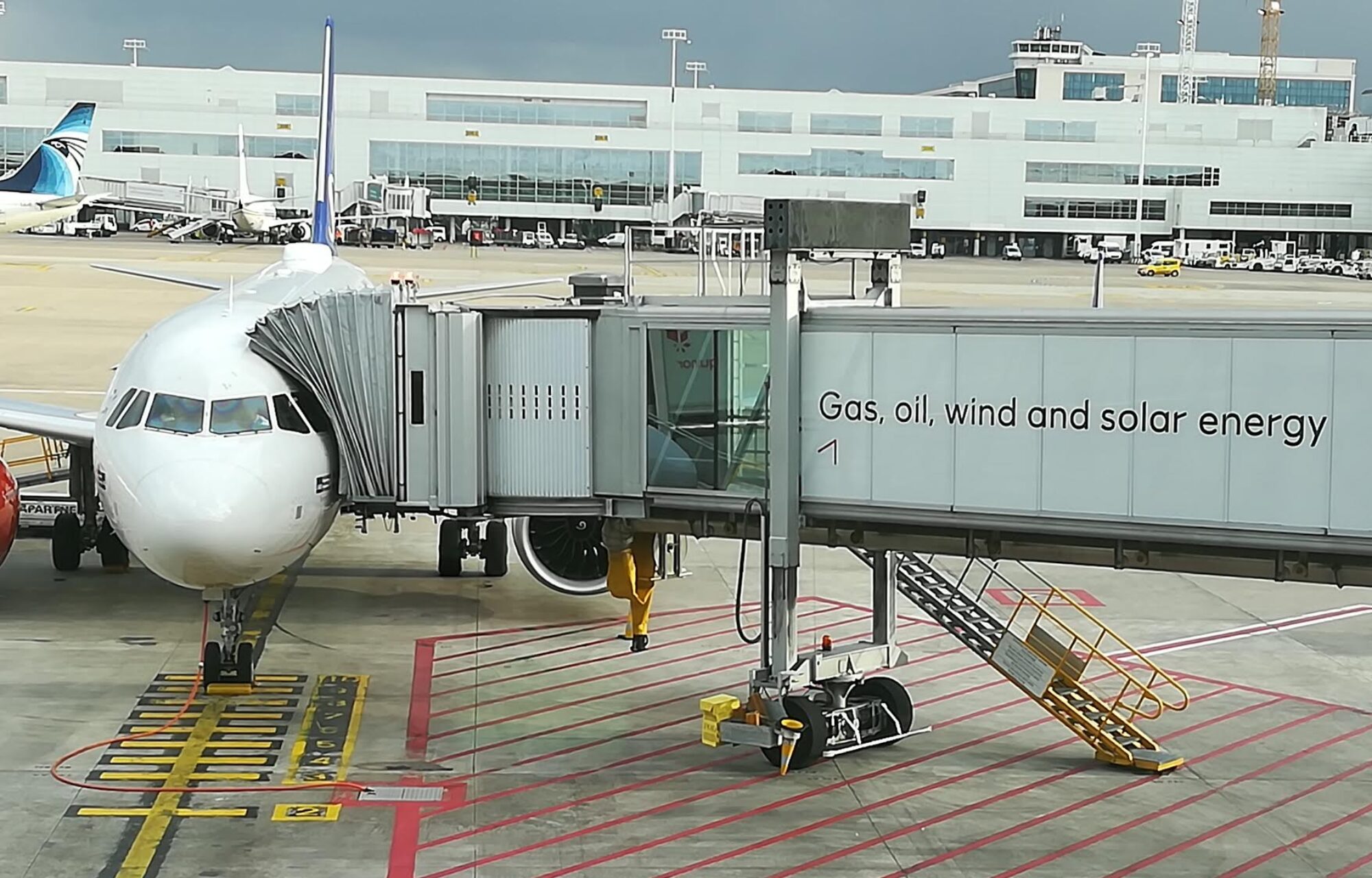What does it cost, is it sustainable for Europe and will consumers still get acceptable prices?
1. Fuel is only a small part of your ticket

Airlines fuel prices fluctuate dramatically. Despite this huge variations, world’s aviation grew 5.5% a year since 1950, Today’s efficient airliners use only 3.65 Liter of kerosene per 100 km per passenger, see: The Jet-Engine.
For a flight of 1,000 km, e.g. Paris to Vienna, your airline must buy 36.5 Liter of kerosene at a price of € 0.17/L (May 2020 price). This makes your share of fuel € 6.21. Even, for a very long intercontinental flight of 10,000 km, e.g. Vienna to Singapore, an airline will pay only € 62.10 for fuel. At the petrol pump, you pay energy tax and VAT for your gasoline at € 0.90 per Liter (energy tax, price of the fuel and on top of it VAT). If airlines would have to buy CO2 emission rights at a similar rate, the price of your ticket would go up by € 32,85 for the Paris – Vienna flight, and € 328,50 for the Vienna – Singapore flight.
2. Europe can afford it
A) Europe is one of the most prosperous regions on earth
World map of countries by GDP per capita (nominal) for 2018.

B) Europes geographic advantage
Europe locates at the fringes of Eurasia. It is mainly shielded from close by competitors by the Atlantic Ocean at it’s west, the polar regions at it’s north and the Mediterranean to it’s south. However, very long intercontinental flights to the south and east get severe competition from airlines outside the EU ETS. These flights with, fuel consuming, intermediate stops would then become more favourable. In order to avoid such a negative outcome, EU ETS CO2 emission contribution would preferably stop at a certain distance, e.g. 5,000 km, see: When to stop the clock. In above example, a 10,000 km flight would then pay € 164,25 for emission rights.
3. Ticket prices will always vary greatly
Airlines want to generate as much revenues as possible. Therefore, they sell sometimes tickets at ridiculously low prices. This doesn’t change when prices for fuel go up or down, see above, and won’t change if airlines buy CO2 emission rights for their flights.
A) Airlines ticket prices vary with demand
Many businessmen buy expensive tickets on Monday mornings, whilst late Sunday evening demand is low. Therefore, airlines offer their customers only expensive tickets on former but many cheap ones on the later flight. Bargains of € 99.99 or even € 9.99 do not cover the costs, but generates at least some revenue from an otherwise empty seat. Airlines combine the earnings and losses of both flights to make a profit.
B) Selling a ticket is not an airline’s only objective
Many airlines profit from other revenues connected to a ticket. Booking a ticket is connected to booking a hotel, a rental car, transfers, luggage allowances, or buying insurances, seat options, duty free articles or food and drink at an airport or on board, e.t.c. Airlines benefit from these revenues too, because many run these shops at the airport themselves.
At the end, Europe can profit from increased revenues from CO2 emission rights. These revenues can flow into research and development of sustainable transport solutions assuring long term high quality employments.

One Reply to “Europe can afford CO2-fair taxation”